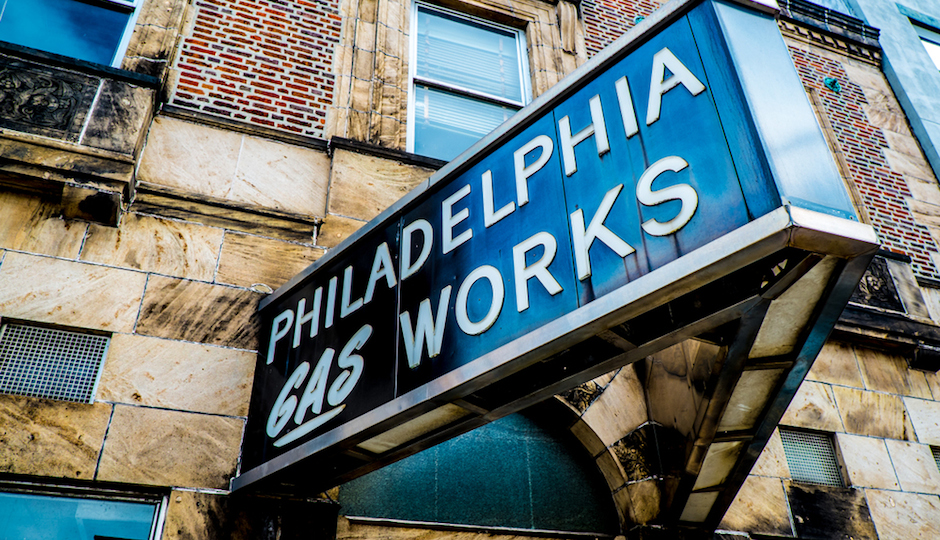The One Question That Really Matters About the Proposed PGW Sale

Photo | Jeff Fusco
Mayor Michael Nutter’s proposal to sell the city-owned Philadelphia Gas Works to a Connecticut utility holding company for nearly $1.9 billion goes before a skeptical City Council for review in the next few weeks. And while some of that skepticism arises from Council’s frosty relationship with the mayor, some of it also has a legitimate policy basis.
Philly journalist Jake Blumgart raised some of the possible policy reasons for objecting to the sale in his recent article on Next City titled “Four Pressing Questions About the Philadelphia Gas Works Sale.” Those four questions deal with the sale’s possible effect on gas rates, the assistance programs the utility offers customers, how PGW deals with customers who can’t pay their bills and the fate of the utility’s workforce. (That workforce made its displeasure with the deal known through protests outside City Hall during the mayor’s March 5th budget address.)
But the main reason the mayor is proposing the sale of the nation’s largest municipal gas utility has to do with that huge unfunded pension liability that threatens to swallow City Hall whole. As long as it remains unaddressed, the city’s rough climb back to fiscal sanity, a project that has consumed the attention of three mayors and a good chunk of Harrisburg’s time, could unravel quickly.
What that means is that the most important question for Council and the rest of us to ponder as the sale is debated is: Will a PGW sale do more to plug that hole than keeping it would?
The mayor, of course, says it will. An analysis performed in October (PDF) by Lazard Freres & Co., the city’s financial advisor, estimated that a sale of the Gas Works could fetch anywhere from $1.45 to $1.9 billion. After using some of the proceeds to pay down PGW debt and fully fund its pension plan, the sale would put anywhere from $422 million to $872 million into the city treasury, and after factoring in the loss of the $18 million annual franchise fee PGW pays to the city and the addition of taxes a private owner would pay, Lazard estimated the net present value of the sale as anywhere from $278 million to $762 million.
Let’s split the difference between those low and high figures and say the sale will have a net present value of about $500 million. Half a billion dollars is nothing to sneeze at, even if it represents less than 10 percent of the city’s total unfunded pension liability. But that liability won’t all come due tomorrow, and the possibility exists that it could be taken care of with ongoing payments from a continuing revenue stream. Like the one PGW provides, for instance.
Operationally, PGW has been transformed over the past few years from a wreck into a well-oiled machine, and its revenues reflect that. Over the five fiscal years that ended in 2012, the utility posted steady gains in annual net revenue until a warmer-than-normal winter in 2012 put a dent in that growth. With the Marcellus Shale offering the possibility of cheap gas rates for years to come, astute PGW management could produce continued revenue growth.
Just as nothing in the proposed sale guarantees that the utility’s current rates won’t go up — nor that assistance programs will remain unchanged or the workforce held harmless — nothing in the city’s current arrangements with PGW guarantees that annual payments from the utility to the city treasury must remain as they have been. Some of the revenue that PGW has generated must be plowed back into the operation, and the utility does face a pretty large infrastructure bill as aging cast-iron gas mains must be replaced, but the dramatic increase in PGW net revenue of late — from $3.1 million in fiscal 2008 to $29.8 million in fiscal 2012 (down from $53.3 million the previous year) — raises the possibility that new arrangements could be forged to provide the city treasury with a percentage of net revenue on top of the franchise fee.
Would that be enough to cover the injection the sale promises to provide? If so, maybe the city shouldn’t be so quick to sell PGW now that it’s an asset rather than a liability. If it isn’t, then maybe those four pressing questions need to be addressed in additional conditions attached to the sale.
Follow @MarketStEl on Twitter.


